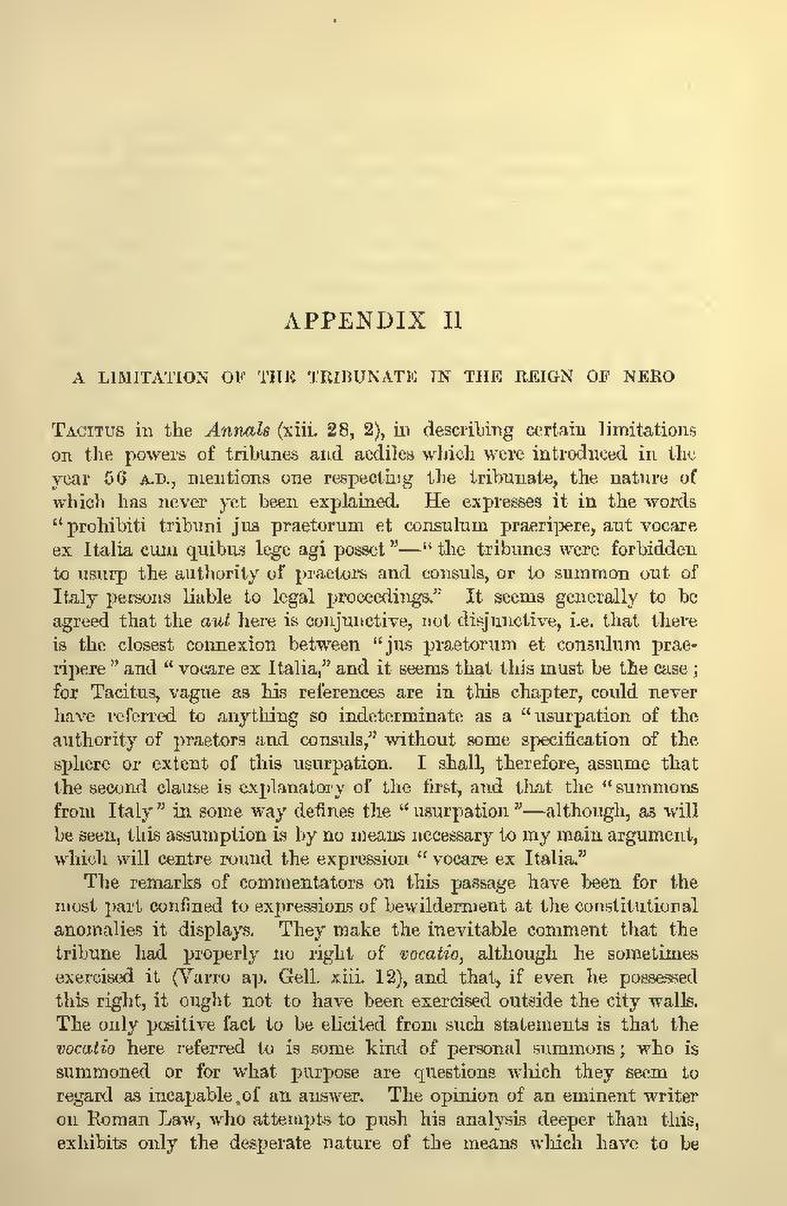APPENDIX II
A LIMITATION OF THE TRIBUNATE IN THE REIGN OF NERO
Tacitus in the Annals (xiii. 28, 2), in describing certain limitations
on the powers of tribunes and aediles which were introduced in the
year 56 A.D., mentions one respecting the tribunate, the nature of
which has never yet been explained. He expresses it in the words
"prohibiti tribuni jus praetorum et consulum praeripere, aut vocare
ex Italia cum quibus lege agi posset"—"the tribunes were forbidden
to usurp the authority of praetors and consuls, or to summon out of
Italy persons liable to legal proceedings." It seems generally to be
agreed that the aut here is conjunctive, not disjunctive, i.e. that there
is the closest connexion between "jus praetorum et consulum praeripere"
and "vocare ex Italia," and it seems that this must be the case;
for Tacitus, vague as his references are in this chapter, could never
have referred to anything so indeterminate as a "usurpation of the
authority of praetors and consuls," without some specification of the
sphere or extent of this usurpation. I shall, therefore, assume that
the second clause is explanatory of the first, and that the "summons
from Italy" in some way defines the "usurpation"—although, as will
be seen, this assumption is by no means necessary to my main argument,
which will centre round the expression "vocare ex Italia."
The remarks of commentators on this passage have been for the most part confined to expressions of bewilderment at the constitutional anomalies it displays. They make the inevitable comment that the tribune had properly no right of vocatio, although he sometimes exercised it (Varro ap. Gell. xiii. 12), and that, if even he possessed this right, it ought not to have been exercised outside the city walls. The only positive fact to be elicited from such statements is that the vocatio here referred to is some kind of personal summons; who is summoned or for what purpose are questions which they seem to regard as incapable of an answer. The opinion of an eminent writer on Roman Law, who attempts to push his analysis deeper than this, exhibits only the desperate nature of the means which have to be
